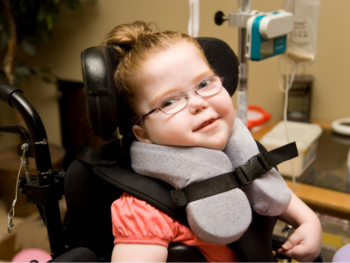Welcome to our Forum
Multiple sclerosis is a disease in which the immune system attacks the central nervous system. It is an autoimmune disorder that causes inflammation in the brain and spinal cord, leading to progressive neurological damage. It can be difficult to diagnose MS because its symptoms vary from person to person and are often vague. Some of …
What Causes Multiple Scleroris? Symptoms, Treatment, and Prevention Read More »
This article will explore the seven types of functional neurological disorders, often misunderstood by the public. A physical injury or brain damage does not cause the disorders. They are not considered mental illnesses either. These disorders are more difficult to diagnose because they do not have a specific medical test. Neurologists use a person’s symptoms …
The 7 Types of Functional Neurological Disorders and How They Affect Your Brain Read More »
Hello, and welcome back to our Monthly Pulse. Waking up to the morning fog and seeing it clear and welcoming fine, sunny days, we can’t help but be thankful for the Autumn season. The season came with the celebration of World Down Syndrome Day, Purple Day, Neurodiversity Celebration, and many more. We saw powerful quotes …
Parkinson’s disease affects both the brain and the nervous system. It is caused by the loss of cells in some brain regions, leading to a decrease in dopamine production. The symptoms of Parkinson’s Disease usually start gradually and worsen over time. They can include shaking or trembling in one or more parts of your body, …
Epilepsy is a condition in which a person has or is predisposed to recurrent seizures. An abnormal, excessive, or hypersynchronous neuronal activity in the brain causes seizures. They can manifest in various ways depending on the person’s age and the type of Epilepsy. Both external and internal factors can trigger seizures. External factors include sleep …
The Guide to Epilepsy and Seizures, How to Prevent and Treat Them Read More »
The end of February had us looking forward to Autumn, but March has already brought sadness and grief with the tragic news of the floods. May we all find the strength to fight out these challenging times. We know things look bleak right now, but things will get better. We were made strong through the …
Tourette Syndrome is a neurological disorder characterized by sudden, repetitive movements or sounds called tics. These tics are usually involuntary and can be either physical or verbal. Tourette Syndrome is considered a chronic condition with no cure in sight. However, some treatments can help with the symptoms and make life easier for those who suffer …
The neurodiversity paradigm shifts the focus away from deficits and towards abilities. It has been used to refer to various neurological conditions, including Autism Spectrum Disorder, Attention Deficit Hyperactivity Disorder, Dyslexia, Dyscalculia, Dysgraphia, PTSD, and Tourette’s Syndrome. What is Neurodiversity? Below are some of the definitions of Neurodiversity: Neurodiversity is the diversity of mental and …
The Best Ways to Support Neurodiverse Individuals & Improve Mental Health Read More »
Hello, and welcome back to our Monthly Pulse. As we leave 2021 behind, the idea of new beginnings may seem exceptionally welcome to many of us. The idea of leaving behind challenging times and disappointments and setting new goals is refreshing. We are looking forward to working with you and creating good memories as we …
Asperger’s Syndrome is less well-known than autism. Asperger’s Syndrome is a lifelong developmental disorder, not an illness or disease. It is also not a mental illness. Those with Asperger’s may have difficulty understanding gestures, facial expressions, and other nonverbal forms of communication. They may also be indifferent to others, clumsy, or susceptible to physical contact. …
Cerebral palsy is a group of diseases that affect body movement and posture. Cerebral Palsy is often diagnosed in children under two, but some people are not diagnosed until adulthood. Cerebral Palsy is characterized by a range of symptoms, ranging from mild to severe. The diagnosis for Cerebral Palsy is made through observation by doctors …
Disabilities are a part of the human condition. They affect a person in a variety of ways. They might be physical in nature, an intellectual challenge, or based on the person’s sensory skills, such as blindness or deafness. Many diverse types of disabilities can affect children and adults alike. Many different disabilities can affect children …
The Complete Guide to Dyslexia and How It Affects Your Reading, Writing & Memory Read More »
The team at Grace Healthcare -Your Care Your Way would like to take this opportunity to wish you all a very merry Christmas and hope you manage to find some time to relax and enjoy your families as we head into the New Year.
As parents, we think about the well-being of our kids. We want to give them all the love and care in the world. But, unfortunately for some families, that is not possible. Parents face making complex decisions that might change their children’s lives forever. With disabilities, these situations are often more common than not. It …
The Reality of Children Living with Disabilities and the True Meaning of Family Read More »
One of the most common types of disabilities is an invisible disability. Although others cannot see their disability, they impact their thoughts, actions, and behaviors. These people might not talk about their disability because it often goes unnoticed by others. It does not manifest itself in ways that are easily noticed by others. What are …
How Invisible Disabilities Affect People’s Lives Read More »
What is Intellectual Disability? Intellectual disability (ID) is a general term for cognitive delays that are more pronounced than the average person. Many distinct types of ID can be diagnosed, including autism spectrum disorder (ASD), attention deficit hyperactivity disorder (ADHD), and intellectual developmental disorder (IDD). These disabilities vary in intensity, effect, and severity. Identity Development: …
The Effect of Intellectually Disabled People on Relationships Read More »
Hello, and welcome back to our Monthly Pulse. As we wave goodbye to Spring, let us forget about the gloom-and-doom news that has been popping up everywhere we look. Let’s focus on the positive and be grateful for the little things. Summer is in the air, our trees have lots of leaves, and many plants …
Down syndrome is a genetic disorder that causes lifelong intellectual disability, developmental delays, and specific physical features. The leading cause for Down syndrome is having three copies of chromosome 21 instead of two copies. The symptoms of Down Syndrome are usually noticed at birth or shortly after. There are many misconceptions about this condition, but …
The World of Down Syndrome and Why Companies Should Start Diversifying Read More »
- 1
- 2


















